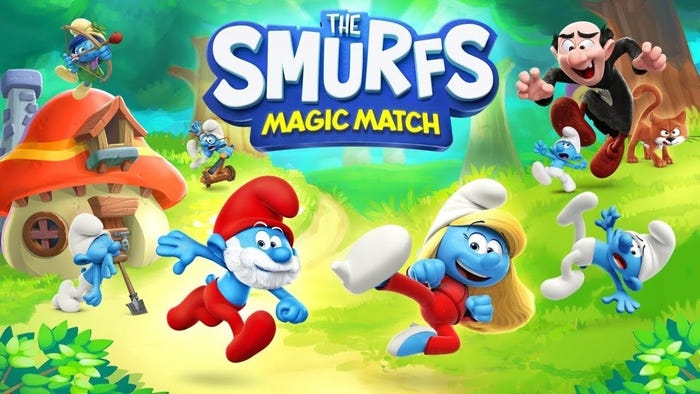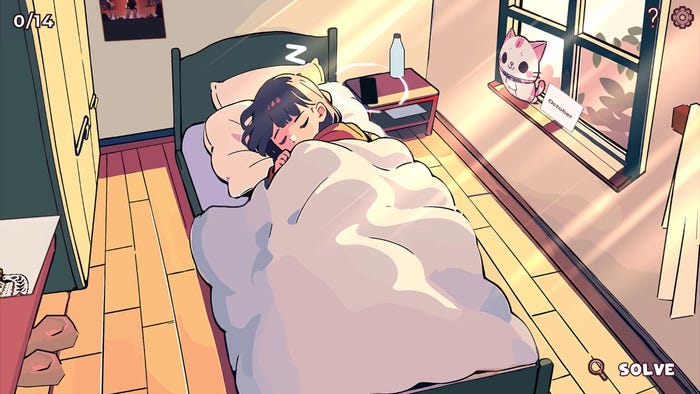Postcards from Birmingham’s Launch 2013 Conference.
Launch Future Gaming & Digital Conference 2013 just ended in Birmingham. With many indie developers in attendance, as well as such big names as Autodesk, Unity, Microsoft and UKIE, it offered insights into current works and mood of UK's games industry.

Here is a handful of summaries, thoughts and impressions after visiting the Launch Future Gaming & Digital Conference 2013 (here is the website), which took place on 21st and 22nd November in Birmingham, UK. The conference was attended by small and medium companies operating in the games industry – from indie developers and middleware providers, to the creators of social platforms and consultancy services. Big names such as Marmalade, Microsoft, Autodesk, Unity and UKIE were also present. The conference consisted of both exhibition space, as well as lectures and panel talks.
Game developers: (British) lion cubs
By the look of things, and by the smell of things, business is going well for indie developers in the UK’s Midlands. It seems that many young people who are freshly out of university (or in the final years of their degrees) have the guts and skills to take the matters in their own hands and start their own businesses. Some of them use bootstrapping to finance their ventures, others turn to ever-more-popular crowdfunding; there are business incubators, venture capitalists and European development funds to help them. As a result, the cross-section of game developers at Launch 2013 Conference was rife with creativity and ‘gung-ho’ attitude.

A tad dark picture of the main exhibition space at the Launch 2013 Conference.
Boy, were there wonders to behold! With the presence of such titles as Red Shirt (The Tiniest Shark), Three Monkeys (Incus Games), Paddlin’ Out (Chillsters) and Eden Star (Flix Interactive), there was loads of fun to be had both while playing those games, but also when chatting to the people behind them. Listening to their stories, experiences and observations painted an interesting image of UK’s games industry, which struggles to succeed despite the lack of British large publishing companies and incessant brain-drain to other game-developing countries, such as USA (especially California, Georgia and Washington) and Canada (which has been offering tax breaks for game developers for some time now). Local game development scene aspires to create its own IP which can be successful in the increasingly competitive global market.
Some of the game developers take interesting approaches to their market strategies – for instance Incus Games with their game Three Monkeys targets visually impaired players and builds games that can be enjoyed by this social group first and foremost. Incus Games plans to establish brand name in this market niche, and then likely expand into the mainstream, with a name already recognizable in the cluttered landscape of thousands available indie games. Another indie developer that stood out, The Tiniest Shark, plays around with cultural tropes in its Red Shirt game – which has already attracted a lot of attention from major gaming press, such as PC Gamer. In the game design it adapts some of the game-like elements of social networking sites to build its own mechanics of fun and enjoyment, offering a game which is certainly innovative, fresh, and which has a chance of finally bridging the divide between Star Wars and Star Trek fans...
Education and training resources: business-relevance and crossing ‘valleys of death’
Two initiatives deserve special mention here: Gamer Camp Studios and Skills Investment Fund. Both of them strive to make the transition from the university education into the real industrial setting easier for aspiring game developers. Additionally, Skills Investment Fund offers other opportunities for game studios (among other creative industries, such as VFX and animation) to reduce the costs of employee training and development. I will discuss both of these initiatives here in brief:
Gamer Camp Studios offer master-level education in game development – as such, they are preparing students to have all the practical as well as sought-after skills to succeed in the industry. This initiative is tied to Birmingham City University, and the students receive their qualifications from this institution (either M.Sc. or M.A.). Overall, Gamer Camp Studios attempt to bridge the gap between the inexperienced graduates from various undergraduate-level game development programmes, and the industry’s requirements for work candidates. Guided by an experienced team of industry veterans and educators (led by Oliver Williams), students enrolled on the course produce market-ready games that are already being noticed by very big names in the industry.
Skills Investment Fund (SIF) is an initiative supported by the UK’s Department for Culture, Media & Sport. In a nutshell, this fund offers grants to game development studios to enhance the skills of their employees (thus fostering and encouraging the studio’s more generous spending on training), as well as to help both studios and jobseekers (especially fresh graduates from the universities) to find each other, match qualifications and sign employment contracts. The former aspect of SIF is called Challenge Fund, and it offers grants of up to 1 million GBP a year (10.000 GBP minimum; match funding) to “deliver creative and practical ways to boost skills and develop talent in [game] companies” (SIF, 2013). The latter aspect of SIF bears the name Trainee Finder and is all about offering game companies access to “diverse and talented pool of trainees to help them find the best people in the industry” (SIF, 2013).
Panels: say, how much money do you think you need?
Chaired by Dr Jo Swift (CEO of UKIE), the panel on funding game development was certainly the most practically-oriented and insightful event at the conference. The speakers included Mike Heyes (Mercia Fund), James Brooksby (Born Ready Games), John Tearl (Flix Interactive) and Jaspal Sohal (Creative England). They spoke about issues pertaining to both individual game studios seeking financing to start developing their own games, but also about general phenomena in the UK’s games industry. The panellists discussed the initiatives to transition UK’s games industry from a service-based businesses to more IP-based enterprises. Sohal mentioned the need to safeguard jobs in the sector, as well as creating new workplaces as the studios grow and scale. Heyes described Enterprise Investment Scheme as well as various seed funding opportunities arising as part of it.

Funding panel - chaired by Dr Jo Twist (UKIE). From left to right: John Tearl, Mike Heyes, Jaspal Sohal, James Brooksby.
One interesting point made was that an investment of roughly 150.000 GBP is enough to get a game to certain stages of development where the value of the project, as well as its chances of success, are clear. From there, if a game project meets criteria, studios can expect another batch of investment of around 200.000 – 300.000 GBP to bring the game to the market. Heyes also mentioned the fact that investment funds are becoming increasingly attuned to the realities of financing game development and indie studios, and that the general tendency for venture capitalists is to invest in person behind the project – hence the importance of one’s track record and (proven) capabilities.
Not surprisingly, speakers pointed to networking as having a great influence on chances of getting funding. ‘VCs will never invest in a good idea which is only on a piece of paper’, said the panellists. ‘VCs need to see a prototype, something that brings the project alive; they want to see the sweat and code, as well as some proven thinking’. The panel also suggested trade bodies, accountancies and game industry lawyers as good sources of help and advice. In the closing minutes, Dr Twist solicited comments from the panel on the changing shape of developer-publisher relationships. Panellists mentioned new intermediary was of working with publishers, no reasons to be anti-publisher (as there is still a lot of value in publisher-financing model of game development, despite the recent changes in the global industry and distribution channels) and, interestingly, recent trend of numerous small publishers appearing in the market.
Talks: advice to start-up studios and the nuts and bolts of game production
There were two other exceptionally interesting talks at the conference delivered by Gary Dunn (VP, Business Franchise at Codematers Software) and by Jennifer Rivas (Producer at Exient). Gary Dunn’s talk, which was particularly useful for people just starting in the industry, listed ten things that Dunn ‘wished he knew at the beginning of his career’. Among other things, he spoke of the close relationship between customers and developers today, and the need for even the small development studios to have a marketing function. Jennifer Rivas discussed her experiences and observations stemming from many years working as a producer in the industry. ‘If you happen to be a producer’, she said, ‘it is very important to show your team the appreciation of their hard work (especially during crunch time) in order to keep the team motivated’ (she spoke of the power of simple human kindness in those situations). Rivas also mentioned the role of teamwork and trust in developing games, and the producer’s function as the mediator in the process of game production.

Jennifer Rivas sharing her experiences as games producer.
Some other interesting talks were delivered by Deepak Pathak (CEO of WeWana:Play) on his company’s new social networking platform for mobile phones, allowing gamers to quickly find people to play games with. Steve Ince (Broken Sword series) spoke of the role of narrative in games. Finally, Scott Homer (Artist at Crytek UK) shared his experiences of working at AAA studio in a talk geared towards inspiring students, to whom the conference was open on the second day.
For more information, follow this link to the conference's website.
Read more about:
BlogsAbout the Author(s)
You May Also Like









